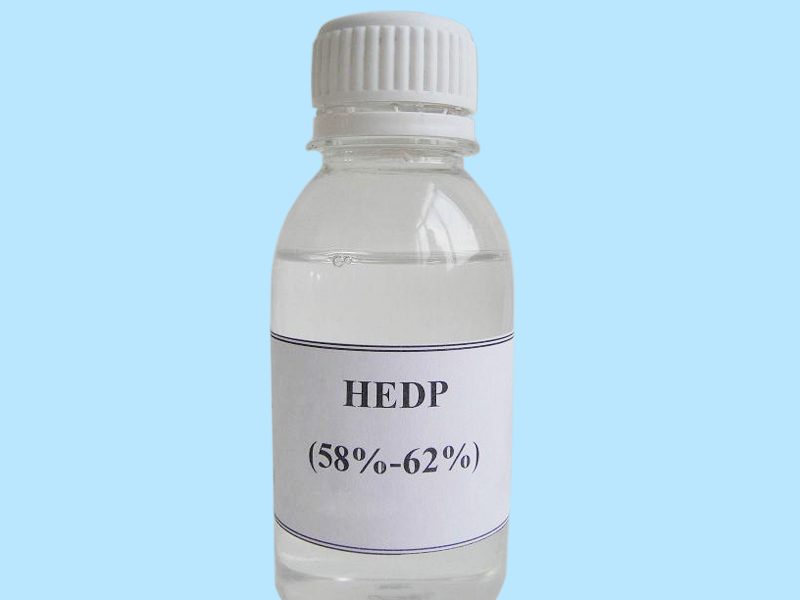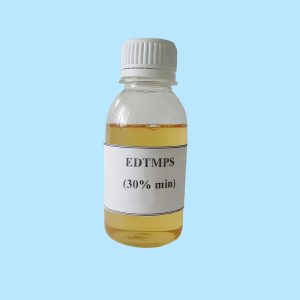
Contents
- 1 Understanding Corrosion and Scale Inhibitors: Essential Tools for Industrial Water Systems
- 2 Introduction
- 3 What are Corrosion and Scale Inhibitors?
- 4 The Importance of Corrosion and Scale Inhibitors
- 5 How Corrosion and Scale Inhibitors Work
- 6 Applications of Corrosion and Scale Inhibitors
- 7 Choosing the Right Inhibitors
- 8 What Types of Corrosion and Scale Inhibitors Does WaterCareChem Provide?
- 9 Conclusion
- 10 FAQs:
Understanding Corrosion and Scale Inhibitors: Essential Tools for Industrial Water Systems

Introduction
Corrosion and scale inhibitors are vital in maintaining the efficiency and longevity of industrial water systems. These chemicals play a crucial role in preventing the damaging effects of corrosion and scale formation, which can lead to costly repairs and downtime. In this article, we will explore the importance of corrosion and scale inhibitors, how they work, and their applications in various industries.

What are Corrosion and Scale Inhibitors?
Corrosion Inhibitors are chemicals that prevent or reduce the rate of corrosion in metal surfaces exposed to water or other corrosive environments. They work by forming a protective film on the metal surface, which acts as a barrier between the metal and the corrosive elements.
Scale Inhibitors are chemicals that prevent or reduce the formation of scale, which is a hard, crystalline deposit that forms on surfaces in contact with water. Scale can reduce the efficiency of heat exchangers, boilers, and other equipment by insulating the surfaces and hindering heat transfer.
The Importance of Corrosion and Scale Inhibitors
- Extending Equipment Life: By preventing corrosion and scale buildup, these inhibitors help extend the life of equipment, reducing the need for frequent replacements.
- Improving Efficiency: Scale inhibitors maintain the efficiency of heat transfer surfaces, while corrosion inhibitors prevent the thinning and weakening of metal components, ensuring optimal performance.
- Cost Savings: Reducing the frequency of repairs and replacements leads to significant cost savings for industries relying on large-scale water systems.
- Seguridad: Preventing corrosion reduces the risk of leaks and equipment failures, enhancing the overall safety of the operation.
How Corrosion and Scale Inhibitors Work
Corrosion Inhibitors:
- Anodic Inhibitors: These compounds form a protective oxide film on the metal surface, reducing the rate of anodic metal dissolution.
- Cathodic Inhibitors: These substances slow down the cathodic reaction, which can involve the reduction of oxygen or hydrogen ions.
- Mixed Inhibitors: These inhibitors provide both anodic and cathodic protection, offering comprehensive corrosion resistance.
Scale Inhibitors:
- Threshold Inhibitors: These chemicals interfere with the crystallization process, preventing the growth of scale-forming crystals.
- Crystal Modifiers: These agents alter the shape and size of scale crystals, making them less likely to adhere to surfaces.
- Dispersants: These chemicals keep scale-forming particles in suspension, preventing them from depositing on surfaces.
Applications of Corrosion and Scale Inhibitors
- Power Plants: Inhibitors are used to protect boilers, condensers, and cooling towers from scale and corrosion, ensuring efficient power generation.
- Oil and Gas Industry: Inhibitors prevent corrosion in pipelines, storage tanks, and other equipment exposed to harsh environments, maintaining the integrity of the infrastructure.
- Water Treatment Plants: These chemicals help maintain the efficiency of water treatment systems by preventing scale formation and corrosion in pipes and equipment.
- HVAC Systems: Inhibitors are used to protect heating and cooling systems from the damaging effects of scale and corrosion, ensuring consistent performance.
- Manufacturing: Industries that rely on water for cooling and processing use inhibitors to protect equipment and maintain production efficiency.
Choosing the Right Inhibitors
Selecting the appropriate corrosion and scale inhibitors depends on several factors:
- Water Chemistry: Understanding the composition of the water being treated is crucial for selecting effective inhibitors.
- System Design: The type of equipment and its operating conditions will influence the choice of inhibitors.
- Environmental Regulations: Compliance with environmental regulations may dictate the use of specific inhibitors or restrict certain chemicals.
What Types of Corrosion and Scale Inhibitors Does WaterCareChem Provide?
WaterCareChem offers a comprehensive range of corrosion and scale inhibitors including
- ATMP (Amino Trimethylene Phosphonic Acid)
- DTPMPA (Diethylene Triamine Penta Methylene Phosphonic Acid)
- HEDP (Hydroxyethylidene Diphosphonic Acid)
- HEDP•Na2 (Disodium Salt of 1-Hydroxy Ethylidene-1,1-Diphosphonic Acid)
- EDTMPS (Ethylene Diamine Tetra (Methylene Phosphonic Acid) Sodium)
- HPAA (2-Hydroxy Phosphonoacetic Acid)
- EDTMP Na5 Pentasodium Salt of Ethylene Diamine Tetra
- STPP (Sodium Tripolyphosphate)
- SHMP (Sodium Hexametaphosphate)
- For additional products, please contact us.
Conclusion
Corrosion and scale inhibitors are essential tools for maintaining the efficiency, safety, and longevity of industrial water systems. By understanding their importance, how they work, and their applications, industries can make informed decisions to protect their infrastructure and ensure optimal performance. Whether in power plants, oil and gas facilities, water treatment plants, HVAC systems, or manufacturing, the right inhibitors can lead to significant cost savings and improved operational efficiency.
FAQs:
- How often should corrosion and scale inhibitors be replenished in industrial systems?
The replenishment frequency of inhibitors depends on factors such as water quality, system conditions, and inhibitor compatibility with other chemicals. Regular water testing and monitoring can help determine the optimal dosing intervals for inhibitors. - Can corrosion inhibitors be retrofitted into existing industrial equipment to mitigate corrosion issues?
Corrosion inhibitors can often be integrated into existing industrial systems to provide protection against corrosion. However, proper assessment of system compatibility and inhibitor effectiveness is necessary to ensure successful retrofitting and long-term corrosion control. - What are the signs that indicate the need for increased dosing of scale inhibitors in a water system?
Signs of scale buildup, reduced heat transfer efficiency, and increased energy consumption may indicate the need for enhanced dosing of scale inhibitors. Regular monitoring of system performance and water chemistry parameters can help identify potential scaling issues and adjust inhibitor levels accordingly. - How can industries optimize inhibitor usage to achieve cost-effective corrosion and scale control?
Industries can optimize inhibitor usage by conducting regular water analysis, implementing automated dosing systems, and establishing preventive maintenance schedules. Proper inhibitor selection, dosing, and monitoring practices can help maximize the effectiveness of inhibitors while minimizing operational costs.
Last Updated on 2024-08-28 by system
